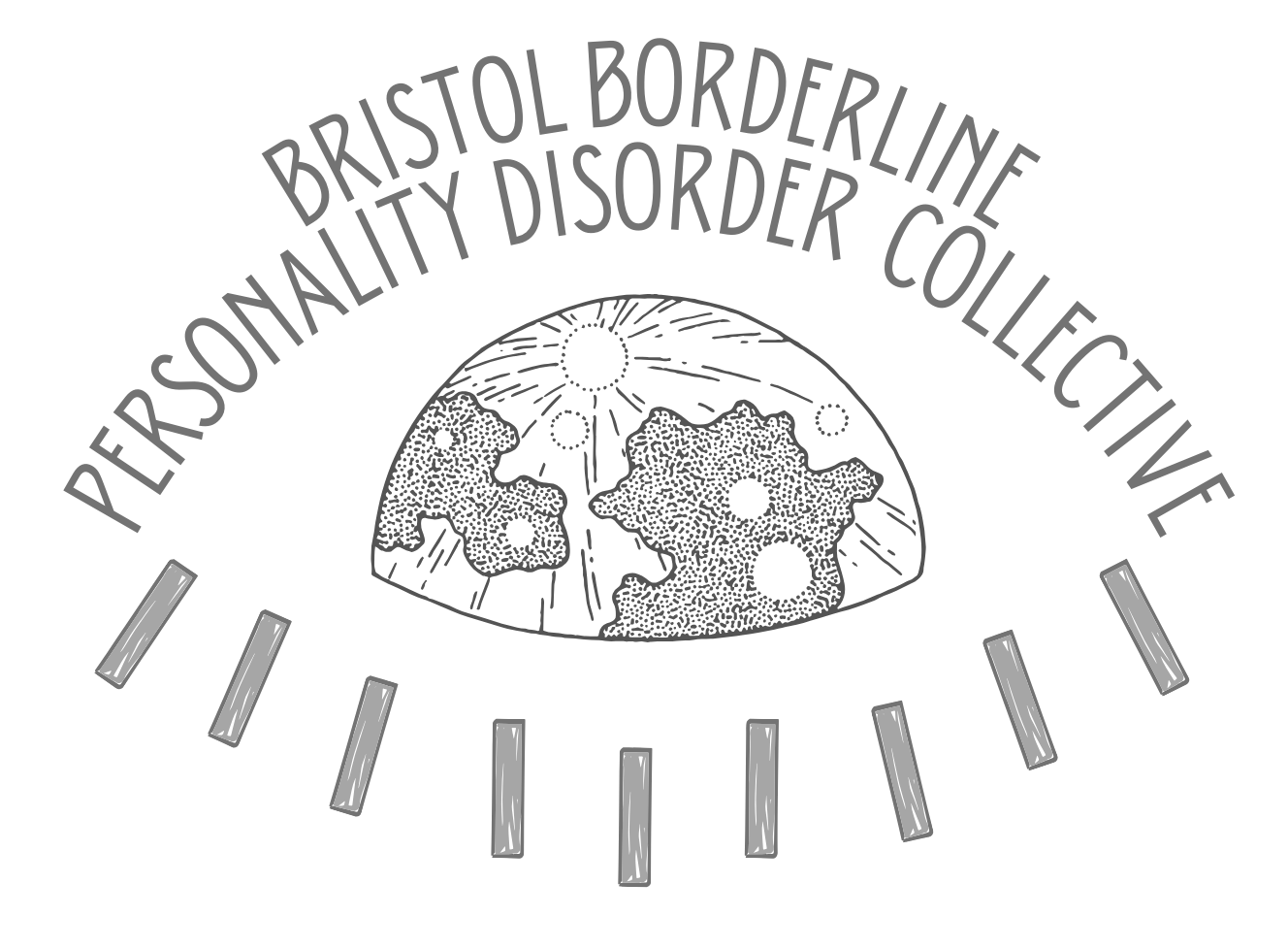
We’d love you hear from you - fill out our Annual Survey 2026
Currently one in ten people with Borderline Personality Disorder die by suicide. People with C-PTSD and other conditions are also greatly at risk.
Many of us do not have access to services or care, and still face enormous stigma. That’s why we believe that non-judgemental and safe spaces like ours are so important in alleviating isolation, through shared experience and mutual support.
What are Borderline Personality Disorder & Complex Post-Traumatic Stress Disorder?
Support for those living with BPD & C-PTSD is thin on the ground - locally, nationally and internationally. The BPD Collective recognises the importance of community, shared experience and hope in recovery, and aims to encourage that through a weekly face-to-face peer support group.
At the BPD Collective, our commitment is to support anyone navigating the challenges associated with BPD, C-PTSD or any similar experiences, with or without a formal diagnosis. We understand that the human experience doesn’t fit neatly into labels — and no one’s path to healing should be limited by diagnostic status. BPD and C-PTSD share a lot of common ground, from intense emotional waves and relational ups and downs to protective responses like derealisation and depersonalisation. Many of these experiences come from the way we’ve adapted to early or ongoing trauma, and they reflect our deep capacity to endure, protect ourselves, and connect meaningfully with others.
Whether you resonate with one or both, you are totally welcome. The Collective is a space for us to support each other, wherever we’re at on our healing journey. Together, we can honour each other’s resilience, embrace our journeys, and create a community that validates each person’s unique way of healing.
You are not alone. Everybody deserves to build a life worth living.
What is BPD?
Borderline Personality Disorder is a way of experiencing emotions and relationships that can feel intense and shifting, often rooted in a need for connection and security amidst challenges in self-image and emotional regulation.
Fear of Abandonment: Many of us experience deep sensitivities around connection and belonging, which can lead to urgent actions when we sense relationships are at risk, whether the threat is real or imagined. This comes from a desire for secure and lasting bonds, a deeply human need.
Intense Relationships: Relationships may sometimes feel like an emotional whirlwind, with intense highs and lows. Loving deeply can also mean feeling shifts in closeness that can be confusing or painful, but it reflects a capacity for deep, genuine connection.
Sense of Self: Identity may feel fluid or shifting, as if it’s still forming. This journey to understand who we are, independent of others’ expectations, is a unique and courageous one.
Impulse and Urgency: Sometimes, actions taken on impulse provide an immediate sense of relief or excitement, even if they bring mixed feelings later. This can be a way of navigating life’s highs and lows in ways that feel grounding or momentarily freeing.
Self-Harm and Suicidal Thoughts: For some, pain can lead to a need for visible or felt release, even through actions that hurt us. These behaviors often reflect inner struggles that feel overwhelming, yet they also show our resilience and desire to cope in the ways we know how.
Intense Emotions: Emotions can feel like waves that surge and fall quickly, and it’s not uncommon for moods to shift within hours. This intensity shows how connected we are to what we feel, and navigating these waves is an act of inner strength.
Feeling Empty: Moments of emptiness or detachment may arise, not because we lack value, but because we are searching for something that feels deeply fulfilling and meaningful.
Experiencing Anger: Anger may appear strongly and without warning, sometimes feeling hard to control. This reflects a profound connection to our boundaries and a sense of self-protection that may be misunderstood.
Disconnection, Derealisation, and Depersonalisation: At times, the world around us might feel distant, dreamlike, or unreal (derealisation), or we might feel detached from our own bodies and thoughts, as though observing ourselves from the outside (depersonalisation). These experiences often arise in response to stress or overwhelm and reflect a natural, though complex, way of coping with intense emotions or environments.
What is C-PTSD?
Complex Post-Traumatic Stress Disorder arises from repeated or prolonged trauma, shaping how we respond to stress, connect with others, and perceive ourselves, often involving heightened vigilance, emotional flashbacks, and protective detachment.
Emotional Flashbacks: Memories don’t always show up as clear images or stories. Sometimes, they surface as sudden waves of emotions—fear, shame, anger—that pull us into past feelings even in the present. These moments aren’t “reliving” the trauma but are our body and mind’s ways of processing and protecting us from what was once overwhelming.
Hypervigilance and Sensitivity to Threat: Many people with C-PTSD find themselves constantly on guard, scanning for potential dangers. This heightened alertness developed as a powerful way to keep safe, helping us sense threats quickly. Though it may feel exhausting now, it once served an essential protective purpose.
Difficulty with Trust and Relationships: If past relationships have been hurtful, it’s natural to feel hesitant about opening up or relying on others. Navigating relationships while carrying these experiences often involves a deep desire for connection alongside a careful self-protection, which is a testament to resilience and the instinct to heal safely.
Sense of Self and Shame: The weight of trauma can affect how we see ourselves, sometimes leading to feelings of guilt or shame that are hard to shake. This response reflects the way our minds and bodies tried to make sense of what happened, even when it was beyond our control.
Emotional Regulation and Numbing: Emotions may feel intense or unpredictable, sometimes making it hard to manage them, or leading us to “turn off” feelings altogether. This fluctuation is the mind’s way of coping with intense past pain, balancing between feeling and protecting.
Avoidance and Dissociation: Sometimes, when emotions or reminders of the past become too intense, a sense of detachment or numbness may arise, or we might avoid places, situations, or people that remind us of what we’ve been through. Dissociation, derealization, or depersonalization may help create distance from the overwhelming, as a way of giving us space and safety.
Derealisation and Depersonalisation: It’s common for those with C-PTSD to experience times when the world around us feels surreal, distant, or dreamlike (derealization), or when we feel detached from our own thoughts and bodies (depersonalization). These experiences are natural ways the mind has learned to protect itself in the face of trauma.

